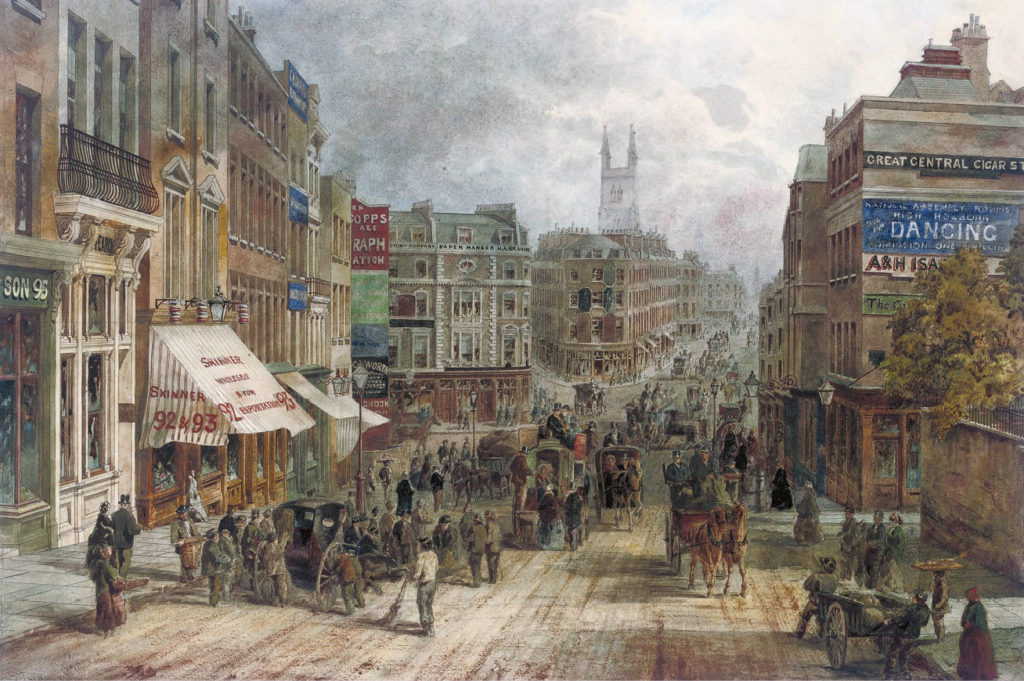The second instalment of a speculative account of the death of John William Polidori.
Link to first instalment.
It crossed my mind that I was dead.
How I surveyed the situation I cannot say. I knew I wasn’t imagining things, but at the same time I could not imagine what would happen next. My perception was active, my thoughts erratic, yet my will – a conscious decisiveness to take action – seemed hampered. I looked at the manuscript of the Fall of the Angels: three more cantos to add.
I looked at my body, which now seemed of lesser importance than the fact I couldn’t finish my masterwork. Tightness closed in. My stomach became a void. I looked at the disordered papers.
How would I finish the manuscript if–?
And Ximenes. All those haphazard lines to rewrite. How ashamed I’m of them now.
I rushed once again for the quill resting on the dedication page: To My Book
I know I dream,
Thinking thy form can gain immortal gleam
Of fame—but yet a straw is grasp’d when fail
The bough or bush upon the stream, though frail–
Ximenes, the Wreath : and other poems, by J. W. Polidori, ‘To My Book’
Counterposing ‘fail’ and ‘frail’ was terribly close to rime riche, a sin in English poetry. I didn’t care about that, I wanted to swap fail and frail.
I dropped the quill as Mr R– rushed back in. He looked momentarily surprised as the quill quivered on the table. Mr R- was followed by a stern man with a broad forehead that spoke of discipline inflicted upon himself and others. I knew this, because this man was my father, Gaetano! That’s right, he returned to London today. He grabbed my hand (my former hand, I know not how to classify it). He attempted to prise open the steely clutching fingers. The hand – attached to me – tingled, as nearby I looked upon him over my (dead?) body.
Words cannot describe the look on my father’s face. “If‒, if only I’d come back sooner. Yesterday. Or even early this morning, today.” Rising too quickly, he had to steady himself.
He turned to Mr R– and said monotonously: “I will send servants from my residence in Golden Square this afternoon to collect,” he paused, coughing, “my son.” He pushed his hat down on his head and exited. I’d never in my life seen my father emotional, and this was as close as I’d get in death.
I wanted to flee after him but my motions were slow. Placing one foot after the other was like walking in water. I approached the bed, looked down at my corporeal body. Could the body on the bed be the corporeal one, and this – I touched my chest – ethereal?
Mr R– pulled the sheets up to my chin. The head – my head on the bed – rolled sideways in limp sympathy. It looked directly at Mr R–, causing him to stand erectly like a coiled spring released. Mr R– was in a mild flummox. He backed towards the door, first hesitatingly, then rapidly.
I followed him as he fumbled for the door knob before plummeting out onto the street. Yes, I followed him, almost automatically.
As soon as I exited my whole body tingled, like my hand had previously. The tingling swept through all the hairs on my body. If the sensation needs describing further, I refer the reader to Wordsworth’s field of daffodils. My poetical clarity subsided into something extremely real and immediate. Then this too subsided.
Why was I able to follow Mr R– and not my father? I couldn’t think. My mind: used to wandering with the faeries of imagination, was now a slug steeped in oily residue.
Outside in the street, perspective was all wrong, time moved forward, but not smoothly forward. It lurched like a limping beggar. I could not focus on anything for long. I strained to see the back of Mr R–. His form was clearer than the other streetwalkers, but if for a moment I took my eyes off him, his figure started to dim. I must concentrate.
But the increased activity was hard to process. What my brain once easily filtered out: a flick of the hand, an idle walker, a horse stamping its feet – these all now were immense distractions.
A street sweeper hauled a pile of refuse into the road, narrowly missing my shoes. Before I had raised my fist he walked right through me. In trying to grasp this fact I doubled over, heaving. I stumbled after Mr R–, my hand outstretched to fend off the delirious swaying street.
I hadn’t walked far when clouds above billowed, a clump broke free from the cumulus layer and descended towards us. Mr R- steadied himself against the gale and pushed forward. Above him, from the cloud an ominous whirlwind spiralled towards earthward. Somehow it left its surroundings completely undisturbed. Before I could emit a cry of amazement, the whirlwind inclined its funnel towards my head. I looked up helplessly.

Two seconds or two hours later, I was spat out upright.
I stood two blocks from Great Pulteney Street. Next to me, Mr R– looked at the plaque of the local constabulary. Before he could knock, the door swung inward and he stumbled forward into the parish constable, officer Sedgewick, who was holding a cheese sandwich.
“Mr R–, if you were so keen for lunch you could just have said so.” He patted his jolly stomach.
“Constable Sedgewick, pardon the interruption. There has been an incident at 38 Great Pulteney Street.”
“An incident?” Constable Sedgewick tore a bite off the sandwich, throwing the remainder at a couple of pigeons in the gutter.
The pit in Mr R–’s stomach widened as the pigeons voraciously jousted over the crust, quickly turning it into flying breadcrumbs.
“I was heading that way now, off to the Queen’s Head.”
I caught a faint whiff of cheese breath, but felt neither hunger or thirst.
Mr R– looked in the gutter.
“That was yesterday’s breakfast. A real rump awaits a real man.” He patted his stomach again, slower this time when it occurred to him that Mr R–’s face was paler than usual.
“I–”
I did not hear the remainder of the dialogue. The whirlwind returned as assuredly as rush hour traffic on Holborn Hill: My-self, wan Mr R–, and plump Sedgewick (and a pigeon) were sucked into the vortex.
We unfolded before 38 Great Pulteney Street. Except another man was present. He was the only one not surprised by the sudden commotion of a bird in the lobby. He calmly stepped aside as the pigeon flew out in the direction of Beak Street.
The only thing this man had in common with the ratman was his youth. Although not older than thirty, he leaned intermittently on a walking stick. His strong hand was encased in the tweed sleeve of a jacket that was a trifle too hot for the late summer. He wore his flat cap to the left so that the brim cast a shadow over his ear.
He stiffly offered his free hand to Mr R–: “Detective Fielding. And you are?”
“Mr R–.” Mr R– gestured for the gentlemen to enter.
Constable Sedgewick hesitated. “After you, Harry.”
Mr R– stopped them both briefly: “Before you enter, just to let you know – the reputation of my master’s business is–”
“Worry not,” said Detective Fielding, “’discretion is not a dirty word in my line of work.”
